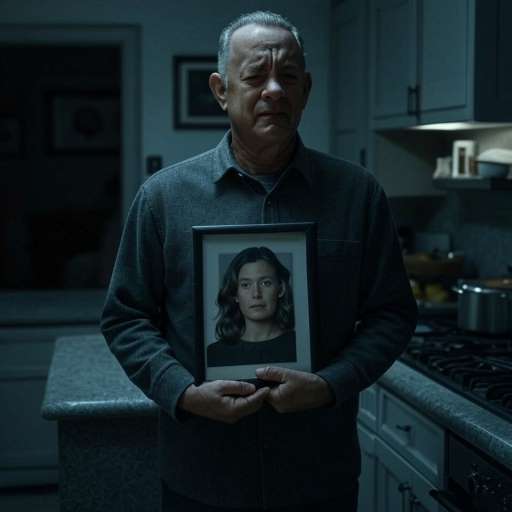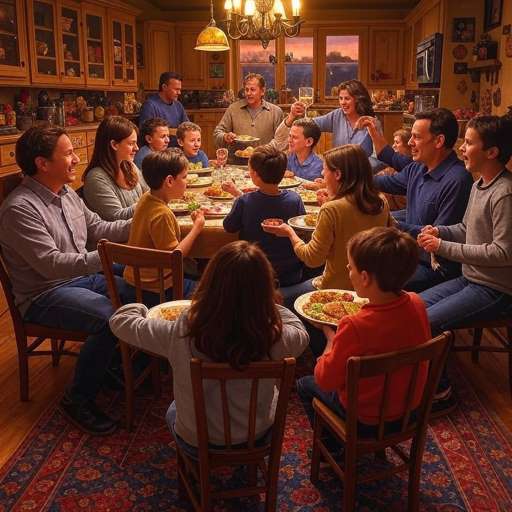
Deeper Meaning of Wisdom Quote
Wisdom Quote: “Home isn’t a place; it’s the people who refuse to let you go.”
This quote, highlights a deep emotional truth: that home isn’t necessarily a physical location like a house or town—it’s a feeling of belonging, safety, and love created by the people who truly care about you.
Let’s break it down:
- “Home isn’t a place” challenges the conventional idea that home is tied to geography or architecture.
- “It’s the people who refuse to let you go” means that home is found in relationships—specifically, with those who stand by you through thick and thin, who accept you, love you, and won’t abandon you even when things get difficult.
What it implies:
- True connection defines home, not a specific address.
- You can feel at home in unfamiliar places if you’re with the right people.
- Conversely, you might feel lost or alone in your childhood house if the people who made it feel like home are no longer there.
It’s a powerful reminder that home is a matter of heart, not coordinates.
Here’s a story inspired by Wisdom Quote “Home isn’t a place; it’s the people who refuse to let you go.”
Wisdom Story: “The House on Elmridge Lane“
After Sonya died, Otto Anderson viewed life through a cracked lens—everything seemed broken, pointless, and unworthy of repair. Every morning, he followed the same routine with precision: check the neighborhood for improperly parked cars, correct the recycling bins, and glare at anyone who dared to break the rules. The world kept moving, but Otto stood still, anchored by loss.
Although his house sat neatly at the end of Elmridge Lane, Otto no longer called it home. It had been their home—his and Sonya’s. Without her laughter echoing off the walls, it felt more like a shell than a shelter.

Marisol’s Family Arriving in the Minivan:
Then one snowy afternoon, chaos pulled into his driveway in the form of a beat-up minivan. Out spilled Marisol, her husband Tommy, and their two young daughters. They were loud. Friendly. Irritatingly persistent. Otto had no interest in making new connections, yet Marisol knocked on his door the next morning with a plate of tamales and a disarming smile.
“I made too many,” she said. “And you look like someone who needs a decent meal.”

Otto Fixing a Ladder for Tommy:
Otto grumbled but took the plate anyway. That simple exchange cracked something inside him. Not much—but enough.
Over the next few weeks, Otto found himself reluctantly helping the family—first with parking, then with fixing a ladder, and eventually teaching Tommy how to drive. Each time, he told himself it was a one-off favor. Each time, Marisol responded with another plate of food or a heartfelt “gracias.” Her children began waving to him every morning, sometimes dragging him out to see their drawings or snowmen. They saw past his gruff exterior, and Otto—despite his best efforts—began to soften.

Otto Standing Alone in His Kitchen:
One evening, Otto stood alone in his kitchen, staring at a photograph of Sonya. The ache in his chest hadn’t gone away, but it had changed. He still missed her fiercely, but now, there were moments when he smiled instead of winced. It was confusing. Guilt-inducing. Yet undeniably real.
That weekend, Marisol invited him to their house for dinner. At first, he refused. But when her youngest daughter showed up at his door with a crayon-drawn invitation that read “Please come, Mister Otto!”, he couldn’t say no.

Dinner at Marisol’s House:
The house was warm and chaotic, filled with laughter, shouting, spilled juice, and burnt tortillas. Otto sat quietly at the table, watching it all unfold. At some point, Marisol looked at him and said, “You know, you’re part of this mess now.”
He shook his head. “I’m just the old man next door.”
“No,” she replied, firmly but kindly. “You’re family.”
That night, Otto returned to his house and lingered in the entryway. For the first time in years, the silence didn’t feel suffocating. It felt… temporary.
Days turned into weeks, and Otto found himself sharing more than just tools and advice. He told stories about Sonya, about the time they met at a bookstore and how she made everything feel like it had purpose. Marisol listened—not out of pity, but with genuine curiosity. In turn, she shared her own struggles: being a mother in a new country, juggling kids and bills, trying to make a home out of uncertainty.

Otto Helping During the Power Outage:
One particularly stormy night, the power went out on the block. Tommy fumbled with flashlights while the children cried in the dark. Otto, without hesitation, grabbed his toolbox and crossed the street. Within an hour, he’d rigged a temporary fix and brought over blankets, candles, and warm soup.
Later, as the family huddled in their living room, Marisol looked at him again and said, “You didn’t have to come.”
“Yes, I did,” Otto replied. “You’re the only people around here who refuse to leave me alone.”
She laughed. “That’s because we care.”
He nodded slowly. “I’m starting to see that.”

Otto Sitting on the Porch with the Kids:
Over time, Otto no longer sat alone on his porch. The children often joined him, drawing with chalk or asking endless questions about tools, animals, or why the sky changed colors. Marisol brought over books, encouraged him to write down his stories, and even convinced him to attend a neighborhood potluck. To everyone’s shock, he did.
Eventually, Otto began to call Elmridge Lane “home” again—but it wasn’t because of the house. It was because of the family across the street who saw him, really saw him, and never gave up.
One afternoon, while fixing Marisol’s broken cabinet, Otto paused and looked around their bustling home. There were fingerprints on the walls, toys underfoot, and mismatched curtains in the windows. But there was also laughter, kindness, and the kind of love that didn’t ask for anything in return.
And in that moment, Otto understood something he hadn’t before: home wasn’t a place you built with bricks—it was the people who held onto you even when you tried to let go.
Here is the ending of wisdom story from the quote “Home isn’t a place; it’s the people who refuse to let you go.”
Moral of the Story:
True home is not defined by walls or location, but by the people who care for you, stand by you, and refuse to give up on you—even when you’ve given up on yourself.
This story teaches that connection, compassion, and community can heal even the deepest grief. Sometimes, when we’re lost in pain, it’s the persistent love of others that reminds us where we truly belong.
To explore more on stories and dive into related ideas, be sure to check out the other posts where we cover all sort of stories related to quotes. Stay tuned for more…..
To explore more on quote topics, be sure to check out the other topics where we cover all categories of quotes. Stay tuned for more…..


After study a few of the blog posts on your website now, and I truly like your way of blogging. I bookmarked it to my bookmark website list and will be checking back soon. Pls check out my web site as well and let me know what you think.